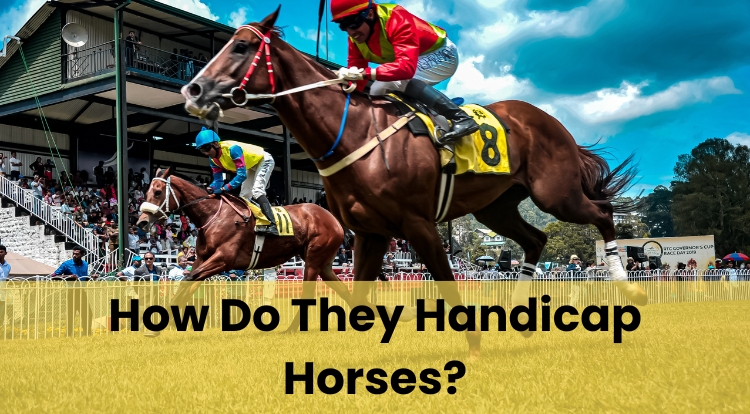
Horse racing can be fun for anyone interested in the sport. But if you’ve heard of handicapping horses, you might wonder what it truly means. Understanding how experts determine the factors that affect a horse's performance is key to following races more insightfully.
In this blog post from Bezy casino, we will explore the ins and outs of horse handicapping, uncovering the methods used and why they matter. Whether you’re a beginner, or just curious, this guide will explain everything you need to know.
What Is The Handicap Rating Of a Horse?
Handicap ratings are a crucial part of horse racing, providing a way to measure a horse’s ability. In simple terms, a handicap rating is a number assigned to a horse based on its past performances in races.
This number helps level the playing field by indicating how much weight a horse should carry during a race. The higher the rating, the more weight the horse carries. This is meant to balance out the competition, giving every horse a fair chance, irrespective of past results.
Handicappers, who are horse racing experts, examine several factors to determine this rating. They consider elements like a horse’s speed, endurance, past race results, and the quality of opposition it has faced.
Once set, the rating is adjusted regularly. If a horse consistently performs well, its rating may increase, while poor performances might lead to a decrease. This ongoing adjustment ensures the handicapping system reflects a horse’s current form as accurately as possible.
What Does It Mean If a Horse Is Out Of Handicap?
If a horse is described as "out of handicap," it means the horse's handicap rating is below the minimum level set for a particular race. In a regular handicap race, each horse is assigned a certain weight based on its rating. This weight is intended to even out the competition.
If a horse's rating is too low for the race requirements, it will carry less weight than the other competitors. However, this situation isn’t necessarily advantageous. Being out of handicap often implies the horse may face stronger competition than usual.
The race conditions dictate the baseline rating needed, and horses with lower ratings may find themselves at a disadvantage. Despite carrying less weight, the level of competition could be tougher than what the horse typically encounters.
For those interested in betting, understanding what being out of handicap means can add context to race selections. It's another factor to consider when assessing a horse's chances, keeping in mind that outcomes are shaped by both data and unpredictability.
How To Pick a Horse In a Handicap?
Choosing a horse in a handicap race involves balancing information with a bit of chance. Since each horse carries different weights to make races fairer, this can influence their performance. Here's how you might approach making your selection.
Start by examining the handicap ratings. These figures give you an idea of the horse's capabilities. Higher-rated horses carry more weight, but this isn't a straightforward indicator of success.
Look at the horse’s recent form. Past performances, especially in handicap races, can provide valuable insights into how they may handle various conditions and competition. A horse that has been performing well might be worth considering.
Pay attention to the trainer and jockey. Experienced trainers and skillful jockeys can significantly impact a horse’s performance. Knowing their track record in similar races might aid your decision.
Assess the race conditions, such as the ground type and distance, as these can affect a horse's performance. Some horses perform better on soft ground, while others may excel over longer distances.
Remember, while informed choices may be beneficial, betting outcomes remain uncertain. It’s essential to approach it with the understanding that outcomes still involve an element of chance.
**The information provided in this blog is intended for educational purposes and should not be construed as betting advice or a guarantee of success. Always gamble responsibly.
